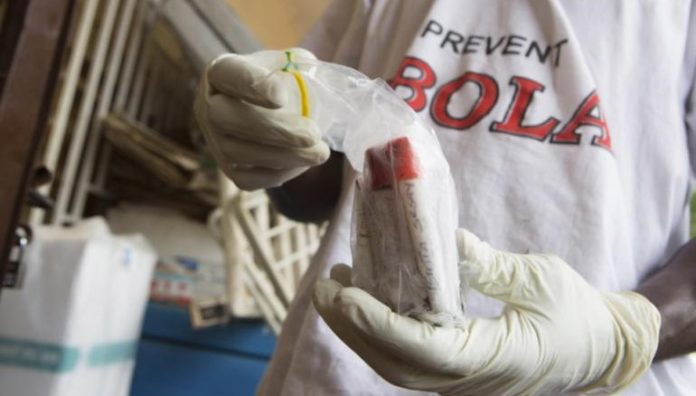
For the first time ever, health organizations in West Africa have begun trials of untested Ebola drug treatments on patients suffering from the disease.
The drug called brincidofovir is being tested in patients at the ELWA 3 center operated by Medecins Sans Frontieres (Doctors Without Borders), the group said Tuesday. Ebola, which has no licensed treatment or cure, has killed more than 8,000 people in West Africa over the past year.
“It must be stressed that it is not a miracle cure and it is still not known whether it will help patients survive the virus,” the medical charity said in announcing the start of the drug trial this week.
Brincidofovir is an antiviral drug being developed to treat several types of viruses, including one that infects patients undergoing bone marrow transplants.
All new patients confirmed to be Ebola positive by blood test at MSF’s ELWA 3 treatment center will be informed about the trial and can decide whether they would like to participate, the charity said. Those who opt out will receive the usual supportive care.
“What we don’t know yet is if it will be effective against Ebola in humans. This is why we must do a trial,” said Dr. Jake Dunning, who is leading the trials conducted by MSF.
The use of experimental drugs on Ebola patients in West Africa was approved by the World Health Organization back in August, but it has taken this long for health officials to organize trials and get limited supplies of the drugs to the affected countries.
Doctors have also begun administering two Japanese drugs as part of a trial on patients in Guinea, where the tropical fever broke out last year. The drug, called Avignan or Favipiravir, was developed by Toyama Chemical as a flu treatment. The medicine was used to succesfully treat a Cuban doctor who contracted Ebola in Sierra Leone last month.
Results for Brincidofovir are expected in February while Favipravir tests may take up to March to produce results.
Experimental drug trials
Brincidofovir is not the only drug being considered for use in treating Ebola. Another drug — ZMapp — healed all 18 monkeys infected with the deadly virus in one recent study. Experimental doses of ZMapp also were given to several humans who suffered from Ebola before the manufacturer’s supply ran out months ago. It was not known whether the doses of ZMapp helped the patients who recovered.
A third drug — The TKM-Ebola injection, by Tekmira Pharmaceuticals of Canada — works by blocking genes that help the Ebola virus reproduce and spread. It has been used in at least one patient and is said to be in limited supply.
Other patients have received blood donations from Ebola survivors who had developed antibodies to the virus.
Meanwhile, pharmaceutical company Johnson and Johnson has started clinical trials in Britain with a special drug that uses a booster from Denmark’s Bavarian Nordic. Around 72 healthy volunteers will be involved in the Phase I testing, which test the medicine’s safety and indicate whether the human body generates an immune response.
Johnson and Johnson said Tuesday it had produced enough vaccine to treat more than 400,000 people and that the drug could be used for large-scale clinical trials by April. The company said it could make enough doses for 5 million vaccines over a period of 12 to 18 months. Currently, health officials say between 100,000 and 12 million doses could be needed to contain the disease.
GlaxoSmithKline, NewLink and Merck also have vaccines in development. Although it is too early to say how much the vaccines would cost, experts believe that such a treatment could help push down death rates by 60 percent.
